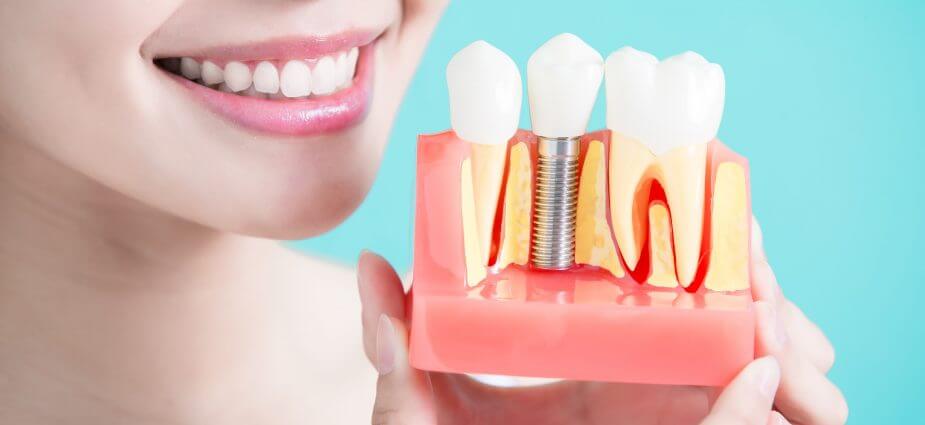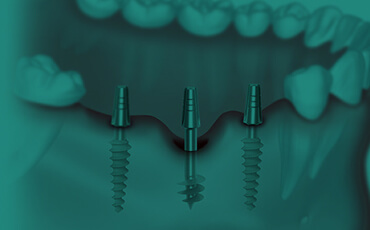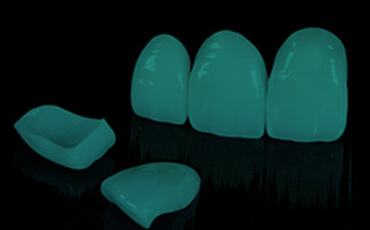
Dental Implants
Missing teeth can take away not only your confidence to smile but also keep you away from your favourite food. Dental implants are the best options to replace your missing teeth. To help you make an informed decision we at Zero Cavity have compiled answers to the most frequently asked questions by our patients.
What are dental implants used for?
Dental implants are used to replace missing teeth.
What are dental implants?
Dental implants are titanium screws which act as the root of your teeth. They fix the tooth with the jawbone. They can be used to replace one or several missing teeth.
What are the benefits of getting dental implants?
- Its closest alternative to natural teeth.
- Increased ability to chew your food.
- Better appearance.
- Enhanced self-confidence.
- Avoid further bone loss.
- Do not harm adjacent teeth.
- Can be cleaned like natural teeth.
- Do not move or click
- Do not slip while eating, talking or laughing, which can be embarrassing.
Which option is better to replace missing teeth, implants, bridges or dentures?
- Unlike other options for replacing teeth, dental implants do not compromise the health of adjacent teeth in the long term. For preparing bridges, adjacent healthy teeth need to be cut down to place the bridge. Removable dentures clasp the adjacent tooth for stability which makes that tooth mobile in the long run.
- Out of all teeth replacement options, dental implants are the only option which preserves the bone.
- Implants have better long term prognosis than bridges or dentures. Therefore, in the long run, investment towards dental implants is lesser than other options.
- Implants are more natural-looking.
What will happen if I choose not to replace my missing teeth?
Missing front teeth can result in a visible space affecting your looks and confidence and can also affect your speech. If after losing teeth you choose not to do anything about it, the other teeth start shifting towards the empty space. If the back teeth are lost, the jawbone begins to shrink which changes the shape of your face and may cause you to look prematurely aged
Will it hurt?
No. With superior local anesthesia techniques available the discomfort associated with getting implants is far less than expected. It is almost equal to or less than having a tooth extracted. There may be a little discomfort and swelling for a short while after surgery which can be easily managed with pain medications.
Can dental implants help me if I wear dentures?
Yes, implants are most frequently requested by denture wearers. Dental implants can help provide retention and support to removable dentures. Or the dentures can also be fixed in place with the help of implants, only the dentist can remove this from the mouth.
What is the right time to get implants done?
Ideally, you should get it as soon as you get your tooth extracted. Sometimes it is possible to place an implant immediately after extraction too. After a tooth is removed, the bone starts shrinking. A good amount of bone is required for implant placement. In cases where there is a lot of bone resorption, a bone graft is required which increases the total cost of the procedure. Still not sure? Visit Zero Cavity and our Implantologist will help you make a decision based on your condition.
Will I be without my teeth?
After placement of an implant, temporary dentures or bridges can be worn over implants till they fuse with the bone.
What are the complications/ risk associated with implants?
Dental implants are one of the safest medical procedures. However, as with any surgery, certain complications can occur rarely.
- Bone loss is one of the most common complications which happens if a missing tooth is left untreated for a long time or if the tooth is lost due to gum diseases. This can be easily corrected by a bone grafting procedure.
- If teeth are required to be placed in the upper back tooth region, sometimes a sinus lift may be required because of thinning of the sinus floor.
- Sometimes the body of a patient with a compromised immune system may reject the implant. Therefore, it is necessary to discuss your complete medical history with your dentist before getting an implant done.
- Infection can occur due to poor aftercare and oral hygiene. This can delay the healing process. It is therefore necessary to follow proper care instructions and avoid smoking and alcohol.
How do I care for my implants?
Implant care depends upon the prosthesis used to replace teeth. Single implant-supported crowns are cleaned exactly like natural teeth with regular brushing and flossing. People with bridges or overdentures require special brushes to clean beneath them. Regular half-yearly visits to the dentist are recommended.





